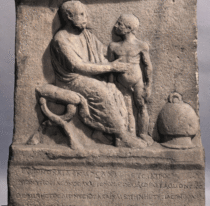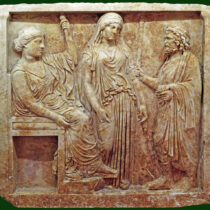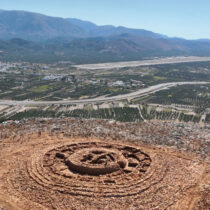The Parthenon marbles, now kept at the British museum, might be returned to Greece as a consequence of Brexit. The statues were removed from the Parthenon in the Athens Acropolis in the early 1800s by Lord Elgin, and were taken to the UK were they remain until today.
The Parthenon and the marbles in question were constructed in about 461BC, under Pericles, who wanted to create a monumental temple to the goddess Athena on the Acropolis, the city’s highest hill. Pheidias, one of the city’s talented sculptors was assigned with the work of decorating the temple with sculptures that would attract visitors from everywhere.
After some centuries the sculptures had suffered damage caused by the passing of time as well as human intervention but many of them were still standing. But when Thomas Bruce, seventh Earl of Elgin travelled to Athens on a mission to copy the works and transfer their splendour to the British people he saw that Ottoman soldiers were using the Acropolis as a military garrison and the sculptures as firearms. Bits of the precious statues were cut off and sold to tourists. Only half of the sculptures created by Pheidias had remained up until that point. Trying to save the sculptures Elgin oversaw their removal and in the next 10 years, from 1800 to 1810, half of them had been brought down and shipped to Britain.
This controversial act by the Earl of Elgin has divided opinions ever since between those who regard him as a saviour of the sculptures for the world and others accusing him of seizing the opportunity to acquire as many of the marbles as he could.
And this brings us to nowadays, when Greece has not recognised the marbles as a legitimate acquisition of Britain, since the Ottomans were an illegitimate occupying power, and Britain claiming that the marbles were lawfully acquired.
The Greek government now, opting for the diplomatic rather than the legal path, sees the Brexit negotiations as a way to exercise some pressure, since the UK government will need approval from all EU member states to reach a Brexit deal. In August, the culture minister of Greece (Lydia Koniordou at the time) sent a letter to the UK’s culture secretary Jeremy Wright asking for negotiations on the return of the marbles to be initiated.
If the UK were to return the marbles, this would be regarded as gesture of friendship to Greece. After all, as was pointed out in a debate on the issue earlier this year, the Parthenon marbles were a work of art which should not be divided. Also, the argument that the marbles are shown to thousands of visitors since the British museum attracts people from all over the world in the case of Brexit will no longer stand. And Greece argues that if the marbles are returned to their rightful place in the Acropolis museum they will be able to travel everywhere in exhibitions as loans by the Greek government.
The issue of course might take decades before it is resolved—if so—but the Acropolis museum in Athens keeps spaces among the exhibits intentionally left blank for the Parthenon marbles hoping that one day they will be returned.
















